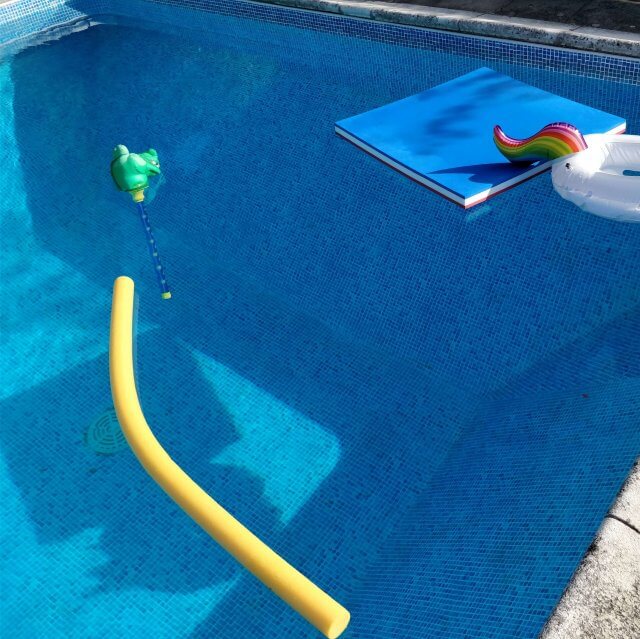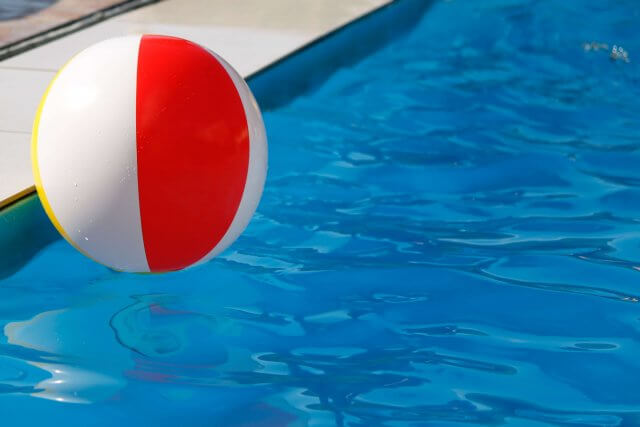No one would deny the fun of having a pool in your backyard. But, this luxury also comes with some responsibility. Whether you are new to owning a pool or have been running it for years, some top tips will help keep your pool safe and enjoyable for all who use it.
So, we’ve put together a list of the top crucial pool maintenance tips you need to know that will help keep you on top of your pool maintenance.

General Cleaning maintenance
Check all filters often
The frequency of pool filter cleaning varies depending on the type, amount and condition of swimming pool services, including filtration equipment. The most common time to clean a filter is every 4-6 weeks or when it becomes visibly dirty. The more often you clean your filter, the more efficient it will be able to function.
Clean out leaves around the pool perimeter
One way to clean leaves off the ground around your pool is to use a leaf blower or brush. The key to using these two tools is to avoid significant disruptions to the dirt on the ground’s surface, as this could cause soil to land in your pool water and contaminate it. If you are dry blowing, make sure you are careful about where you direct the leaves. The goal is to release them into a pile that you can easily scoop up and dispose of without risking your pool water.
Clean the walls and hardware of your pool each month
You should clean the walls of your pool each month to make sure there are no contaminants on the surface, like algae. The last thing you need is cloudy water when you’re ready to go for a dip. It’s best not to allow cleaning chemicals to disrupt the pool water, so remove hardware, like ladders and diving boards, and clean them away from the pool area.
Read our article on pool area maintenance for a more thorough look at taking care of the surrounding pool area.
Water maintenance
It’s essential to balance out chemicals in pool water often to avoid algae and other problems. Chemical safety is essential to the health of your swimming pool and the people who use it.
The pH of the water is the most important factor for you to monitor when it comes to chemical safety. The pH level should be between 7.2 and 7.6, with 7 being slightly acidic and 8 being slightly basic (or alkaline).
The next most important thing is chlorine, which will help prevent algae from appearing in your pool water—you should aim for between 1 and 1.5 ppm.
Lastly, check your calcium hardness levels; these must be somewhere between 200 ppm and 400 ppm for the condition of the pool to stay healthy.

Pool and Spa barrier maintenance
While water maintenance and general cleaning will protect the longevity of your pool and the health of swimmers, your barrier saves lives and – when safety compliance is maintained – you will avoid hefty fines that come with non-compliance. It is the law that you must have a safety-compliant barrier around your swimming pool and spa. Read more about what can happen if your pool barrier is not compliant.
The easiest way to stay on top of pool barrier maintenance is to do a weekly self-inspection by walking around the entire barrier.
During your self-inspection, look out for:
- Any kind of damage to the barrier.
- Changed terrain that makes the barrier easier to climb over or slip under.
- Ensure the gate is still self-closing and self-latching.
- Remove any objects that someone can use to prop the pool gate open.
- Sharp edges that could cause injury.
- Any changes to the area or barrier could pose a hazard or non-compliance with the safety standards.
If you believe the barrier or gate requires repairs, first read our article on barrier and gate maintenance to help, you understand if you require a building permit or renewed safety certificate.
Additional pool maintenance quick tips and hacks
- Clean the pool regularly – every week. Or use a crawler to clean the pool continuously.
- Keep an eye out for leaks, cracks, and other damages that might cause serious damage to your pool.
- Be sure all filters are working correctly before opening up for swimming season each year, then check and change them regularly.
- Clear away any branches or climbable objects that a child or animal could use to scale the pool barrier.
- Excess oils from suncream and tanning lotions will almost always end up in the pool water. A handy trick is to put a few tennis balls in the water and allow them to float around for a few hours. Their fibers will collect the oils settled at the surface of the water. Then, you simply remove the tennis balls and give them a wash away from the pool area.
- If your pool water is cloudy, you can try shocking it with a larger dose of chlorine to sanitise the water. Once sanitised, flush out some of the pool water and replace it with fresh water, then test and balance your pool water chemicals to return it to a safe level for people to swim in.
Note: It’s best to adequately research the pool shocking process before you try it. Talk to your local pool professional for expert guidance.
Now that you know some of these crucial tips, it is time to get your backyard ready for summertime fun!
With these maintenance tips, you can have a clean and safe pool for your family to enjoy all summer long. However, if you’re unsure if your safety barrier is compliant with the latest standards and don’t currently hold a Safety Compliance Certificate, we highly recommend contacting us to book a pre-compliance assessment. Our certified inspectors will assess any potential issues so that you have a chance to amend them before you apply for your Safety Inspection.
